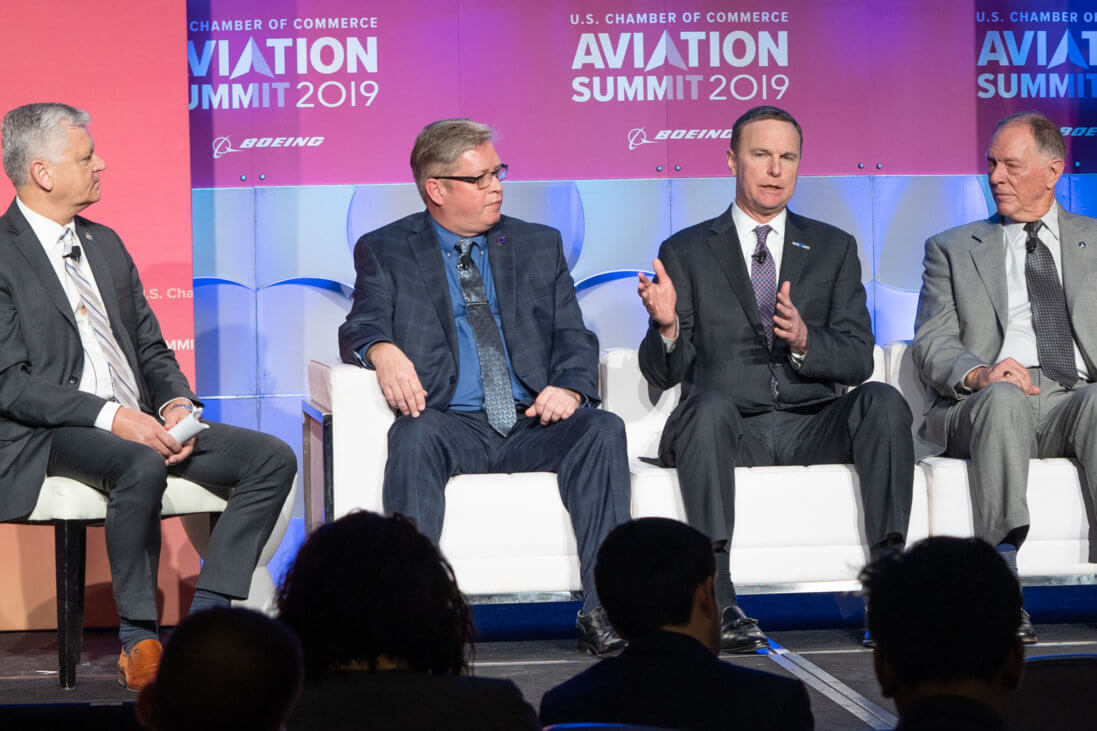
March 8, 2019
It’s imperative for all aviation stakeholders to work together in addressing the industry’s workforce challenges, NBAA President and CEO Ed Bolen said during a March 7 U.S. Chamber of Commerce Aviation Summit panel discussion.
“I think there are lots of ways a united aviation community can address this challenge,” Bolen said. “This is a common, shared challenge.”
Bolen took part in the Washington, DC event as a participant in a panel discussion titled, “Building a Modern Workforce.” Other panelists included the Hon. J. Randoph Babbitt, former FAA administrator; Roger King, international representative, business development, International Brotherhood of Electrical Workers; and Dr. John R. Watret, chancellor, Embry-Riddle Aeronautical University, Worldwide. The session was moderated by Tom Gentile, president and CEO, Spirit AeroSystems, Inc.
The panel discussion’s focus was timely, as illustrated by recent data illuminating the aviation workforce challenge – for example, a survey of NBAA member companies revealed that more than 60 percent have experienced pilot turnover since 2015. Similarly, according to a recent Boeing study, over the next 20 years, there will be a worldwide requirement for 96,000 business aviation pilots, with a commensurate number of maintenance technicians, schedulers and dispatchers, and other necessary personnel to support business aviation operations.
Bolen noted that NBAA routinely works with local business aviation groups, schools and teachers to organize community events that introduce young people to industry-career opportunities.
“We also have a Young Professionals program, which helps those new to the industry go beyond just their company to meet others in industry,” Bolen said. “It’s helping find ways that people can grow and know there is a pathway that will lead to an important and meaningful career.”
To help retain qualified professionals, the association also makes more than $100,000 available each year for scholarships and other workplace-development opportunities.
Bolen concluded by noting aviation’s advantages as “a forward-looking industry in terms of technology, which is appealing to the up-and-coming generation of professionals. Kids today are very focused on technology,” Bolen said. “They love to see where it will take them – but what really sets aviation apart from other industries is its noble purpose.”
“We are effectively connecting people and companies across continents and connecting cultures. We bring people together and make the world smaller,” Bolen said. “It’s about all of us effectively working together to say aviation is a great place to work.”


 International Business Aviation Council Ltd.
International Business Aviation Council Ltd.